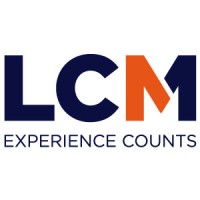CAT Rules in Favour of BT in Harbour-Funded Claim Valued at £1.3bn
As LFJ reported yesterday, funders and law firms alike are looking to the Competition Appeal Tribunal (CAT) as one of the most influential factors for the future of the UK litigation market in 2025 and beyond. A judgment released by the CAT yesterday that found in favour of Britain’s largest telecommunications business may provide a warning to industry leaders of the uncertainty around funding these high value collective proceedings.
An article in The Global Legal Post provides an overview of the judgment handed down by the CAT in Justin Le Patourel v BT Group PLC, as the Tribunal dismissed the claim against the telecoms company following the trial in March of this year. The opt-out claim valued at around £1.3 billion, was first brought before the Tribunal in 2021 and sought compensation for BT customers who had allegedly been overcharged for landline services from October 2015.
In the executive summary of the judgment, the CAT found “that just because a price is excessive does not mean that it was also unfair”, with the Tribunal concluding that “there was no abuse of dominant position” by BT.
The proceedings which were led by class representative Justin Le Patourel, founder of Collective Action on Land Lines (CALL), were financed with Harbour Litigation Funding. When the application for a Collective Proceedings Order (CPO) was granted in 2021, Harbour highlighted the claim as having originally been worth up to £600 million with the potential for customers to receive up to £500 if the case had been successful.
In a statement, Le Patourel said that he was “disappointed that it [the CAT] did not agree that these prices were unfair”, but said that they would now consider “whether the next step will be an appeal to the Court of Appeal to challenge this verdict”. The claimants have been represented by Mishcon de Reya in the case.
Commenting on the impact of the judgment, Tim West, disputes partner at Ashurst, said that it could have a “dampening effect, at least in the short term, on the availability of capital to fund the more novel or unusual claims in the CAT moving forward”. Similarly, Mohsin Patel, director and co-founder of Factor Risk Management, described the outcome as “a bitter pill to swallow” for both the claimants and for the law firm and funder who backed the case.
The CAT’s full judgment and executive summary can be accessed on the Tribunal’s website.















 " />
" />

